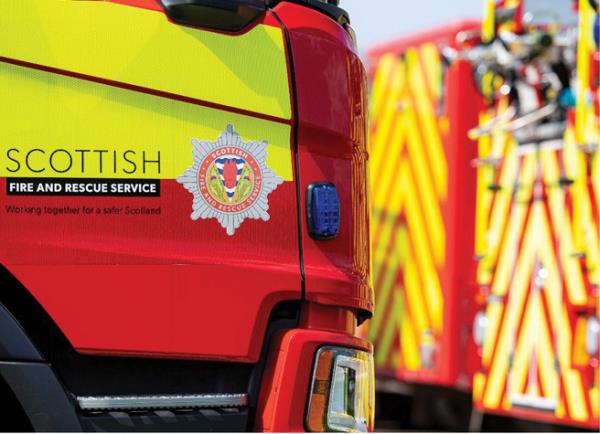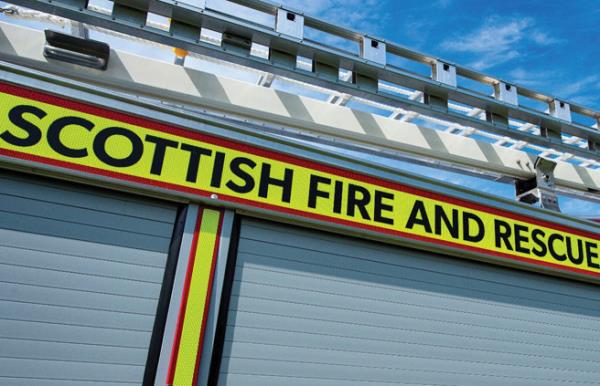07 June 2023

The Scottish Fire & Rescue Service (SFRS) is the world’s fourth largest fire and rescue service. SFRS front-line services are delivered locally from three strategically positioned hubs based in the North, West and East of the country. In addition to fire control and prevention, SFRS responds to many different emergency incidents including road traffic collisions, rope rescue, water rescue, hazardous materials, and flooding as well as assisting partner agencies in keeping communities safe.
In March 2021, following a competitive tender, SFRS awarded MLL Telecom (MLL) an initial four-year Wide Area Network (WAN) services contract to replace their existing nationwide IPVPN-based WAN procured in 2016 and the provision of ongoing fully managed WAN services.
Following a period of extensive planning, MLL commenced the transformation programme in October 2021. This was completed successfully and on time in December 2022.
Project requirements
SFRS required a single network supplier capable of delivering and managing a future-proofed WAN solution to connect over 360 fire and rescue stations throughout Scotland, including highland and island areas. This had to ensure an enhanced user experience through reduced network latency - especially at remote sites – and support SFRS’s planned migration to public and private cloud-based services.
MLL proposed a managed SD-WAN solution based on Fortinet technology, enabling connectivity to all SFRS sites irrespective of their location or underlying connectivity technology. SD-WAN allows bandwidth to be aggregated over multiple circuits – especially important for some of SFRS’s remote locations that are very poorly served with connectivity. The solution also supported SFRS’s planned move to the cloud while ensuring the existing elevated levels of security and control would be maintained.
Moreover, detailed single pane of glass reporting shows how the network and applications are performing. Security is also fully integrated through the highly regarded Fortinet SD-WAN security fabric.
Overcoming challenges
The WAN project required migrating multiple sites nationwide, however, the network technology infrastructure differed considerably. While the larger SFRS fire stations and offices located in and around metro areas benefited from fibre connections including FTTP, many of the sites in rural and remote locations used a hybrid technology approach comprising Superfast, 4G and DSL technologies. Adding further complexity, several sites in Glasgow utilised a microwave network.
The sheer remoteness and rugged environment of many of the SFRS locations, ranging across all the Highlands and Islands, presents an engineering challenge. This adversely impacted the performance of the previous WAN solution, sometimes preventing routine tasks undertaken by SFRS personnel, as well as more critical ones such as accessing cloud-based training applications.
Furthermore, ferries and planes were prone to cancellation at short notice due to the often unfavourable and highly changeable weather conditions, causing delays in equipment delivery and field engineering. Comprehensive and flexible coordination and route planning was therefore of paramount importance.
“The large number of sites involved, often in remote locations, combined with the considerable distances involved and changeable weather all contributed to making this a challenging but very satisfying project,” said MLL field engineer Thomas Guild. “MLL’s super-efficient coordination support made all the difference. It was vital that parts and engineers arrived on time, which they did, no matter how remote the location. On more than one occasion our travel plans had to be changed at short notice due to severe weather. One time, I recall receiving a message from our project management team to abort just as the plane was preparing for take-off to Fair Isle – they had seen a hurricane was forecast to hit the area within the next 48 hours which would have seriously delayed my return and ongoing implementation schedule!”

Project delivery and outcome
A major factor in the project’s success was the close working relationship that has been forged between MLL and SFRS. This ensured that the migration was seamless to end-users and that the network service continued, uninterrupted in-spite of a change in suppliers.
At the outset, MLL assigned an experienced senior project manager to lead the programme and establish a robust transition plan. This included liaison with SFRS’s Project Lead with regular progress meetings, enabling open and transparent communications.
A phased approach to transitioning SFRS sites to the new SD-WAN was agreed. MLL’s technical design architect worked with both SFRS and the previous supplier’s technical teams to agree the technical migration process as well as detailed testing and acceptance plans. MLL’s network operations centre (NOC) engineers also met with SFRS’s IT team to gain additional insight into the existing network.
Site migration was undertaken by MLL’s field engineering team. They were responsible for visiting the sites, testing the lines, and configuring them to support the SD-WAN. Between October 2021 and April 2022, MLL’s field engineers undertook continuous travel five-days a week with overnight stopovers in local hotels and lodgings. Ferries or planes were used to reach the more remote destinations including Orkney, Fair Isle, Shetland, and the Hebrides. In total the team accumulated over 30,000 road miles by the time the transformation project completed.
“MLL has provided SFRS with a reliable, cost-effective, flexible and future-proof WAN solution, supporting our ongoing digital transformation and vision,” said Sandra Fox, head of ICT, Scottish Fire and Rescue Service. “MLL’s SD-WAN and engineering services ensure we can continue to depend on resilient high-quality voice and data services while also paving the way for a smooth transition to a cloud-based architecture over the coming years.”








